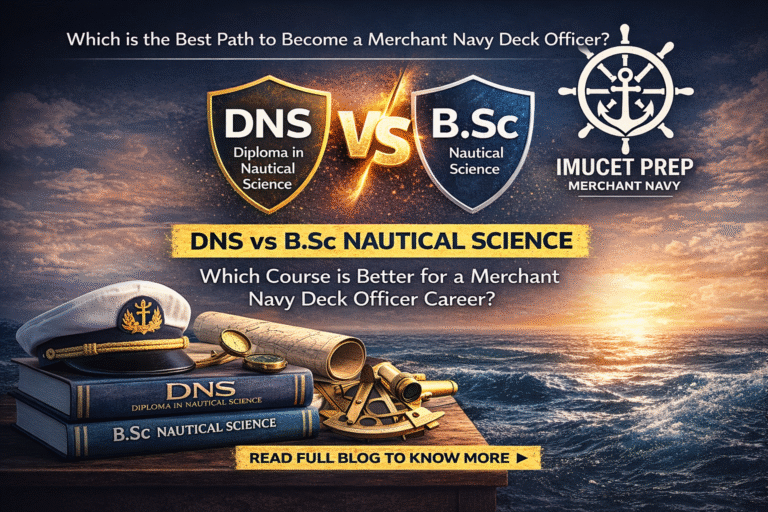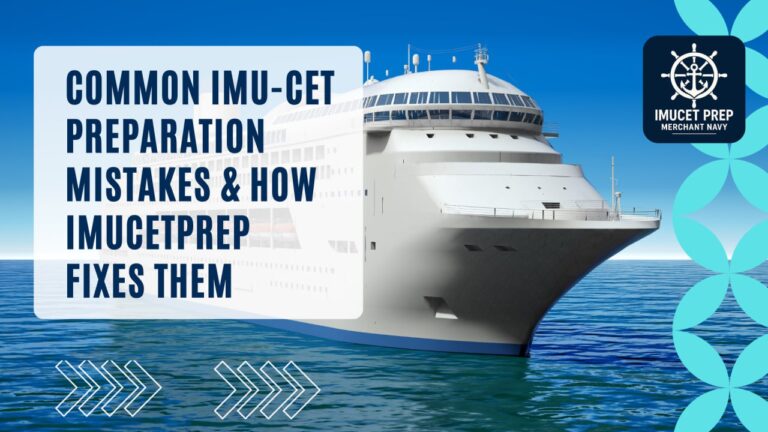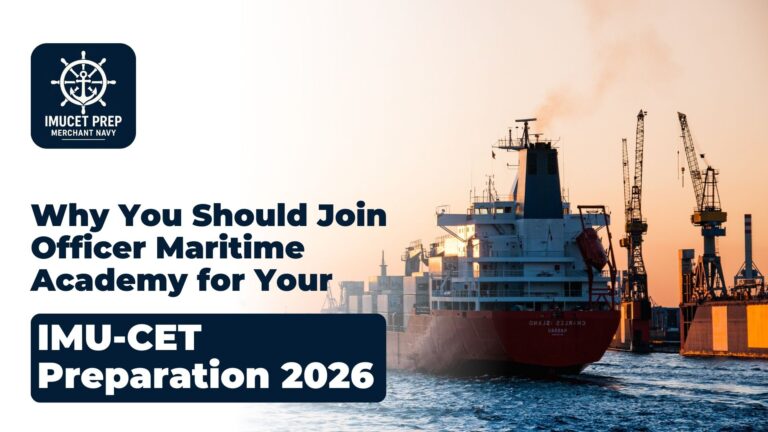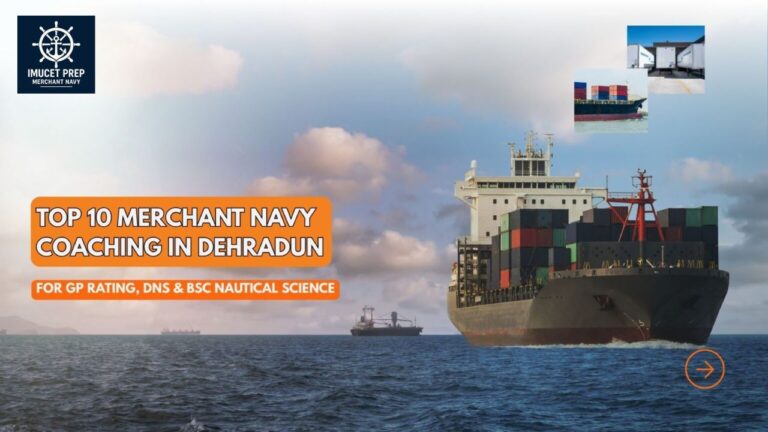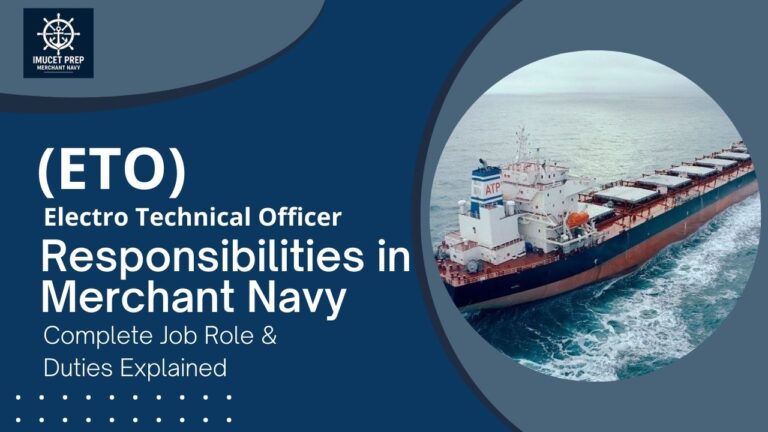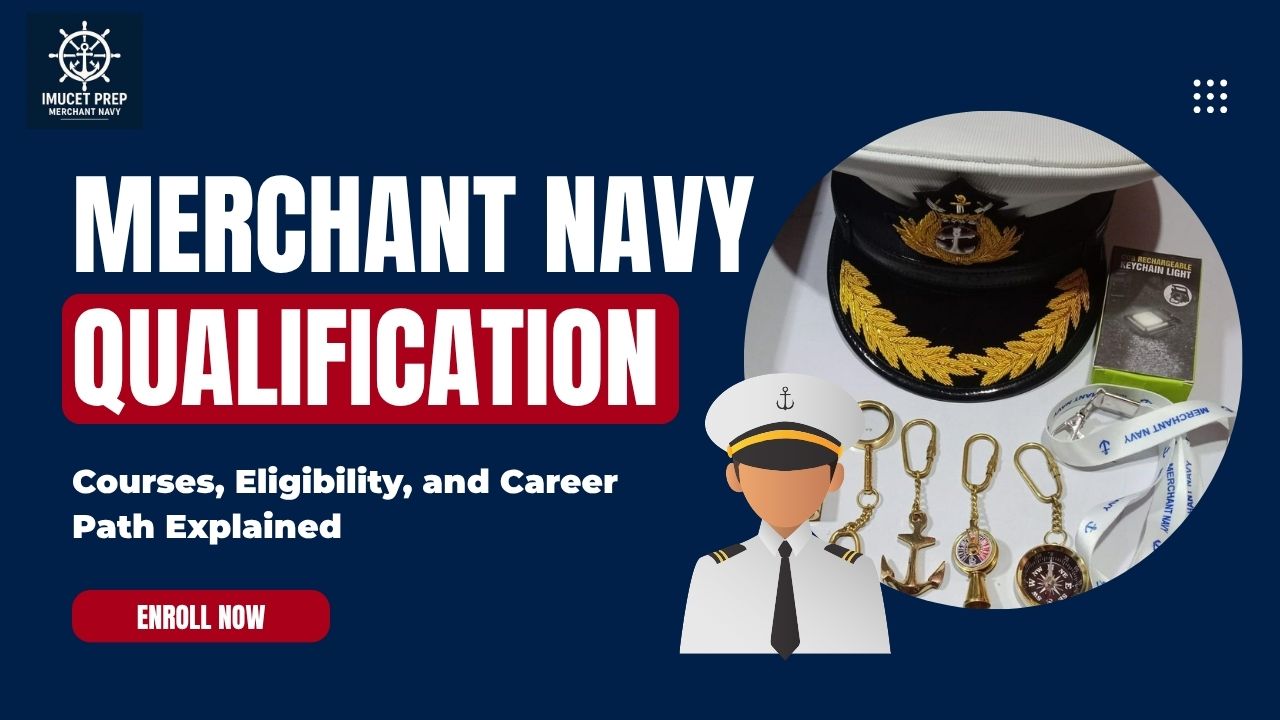
Thinking about a career that takes you around the world and pays well too? The Merchant Navy might just be your calling. But hang on—before you imagine yourself standing on a ship deck in a sharp white uniform, let’s understand what’s needed to get there. Yep, we’re talking about Merchant Navy qualifications. Whether you’re in school, just passed your 12th, or even planning a career switch, this guide will give you the complete lowdown.
What is the Merchant Navy Anyway?
First off, it ain’t the same as the Indian Navy. The Merchant Navy is all about commercial shipping. Transporting goods, oil, and passengers across oceans. It’s the backbone of international trade. And yes, it has its own structure, ranks, and responsibilities.
If you ever dreamt of working at sea, this is the route.
Before jumping into Merchant Navy qualifications, let’s take a moment to understand what the Merchant Navy actually is. Think of it as the commercial wing of maritime services. Unlike the Indian Navy, which is part of the defense forces and protects the nation’s waters, the Merchant Navy is all about business—transporting cargo, fuel, raw materials, and sometimes even passengers across the globe.
Merchant ships include tankers, cargo ships, container ships, passenger liners, oil rigs, and bulk carriers. These vessels operate under both private and government ownership and are staffed by trained professionals who manage everything from navigation and engineering to logistics and communication.
A typical crew includes deck officers (handling navigation and operations), engineers (in charge of machinery), and ratings or support staff. It’s a highly structured environment, with clear roles and promotion paths.
Why Even Consider the Merchant Navy?
So many reasons, honestly:
- Great salary packages, even for freshers.
- A chance to travel the world on someone else’s dime.
- Adventure, discipline, and respect.
- Long leaves and tax-free income (in certain cases).
But it’s not just about the money or the travel perks. Life in the Merchant Navy teaches you responsibility from an early age. You’re part of a team that runs a massive floating city across international waters. That requires discipline, teamwork, and mental toughness.
Then there’s the exposure. You get to interact with people from different cultures, handle real-time challenges, and gain a global perspective that few other careers offer this early.
Now that we got your attention, let’s jump into the Merchant Navy qualification details.
The Basic Educational Requirements
Here’s where it starts. You can join the Merchant Navy after 10th or 12th. But the role you aim for changes what qualification you need.
- For officers (Deck/Engine side):
- 12th pass with Physics, Chemistry, and Maths (PCM)
- Minimum 60% marks (some places accept 55% too, but better safe than sorry)
- For Ratings (support crew):
- 10th or 12th pass depending on the course
Also, you need to be good in English. Not just casual speaking, but solid reading and writing skills—many institutes require 50%+ marks in English.
Courses You Can Take After 10th & 12th
So many people don’t even know they can start preparing for the Merchant Navy just after Class 10. Let’s split it:
After 10th:
- GP Rating Course:
- It’s like your entry-ticket to ship life.
- Duration: 6 months
- After completing it, you can join as an Ordinary Seaman.
- NCV Course:
- For Near Coastal Voyage ships
- Limited area sailing but decent for a start
After 12th (With PCM):
- B.Sc. Nautical Science
- 3-year course to become a deck officer
- B.Tech Marine Engineering
- 4-year degree that sets you up to work as a marine engineer
- Diploma in Nautical Science (DNS)
- 1-year course leading to B.Sc. Nautical Science degree
- Often comes with company sponsorships
Make sure the institute is approved by DG Shipping, or your certificate won’t be valid.
Courses You Can Take After 10th & 12th & After Graduation
So many people don’t even know they can start preparing for the Merchant Navy just after Class 10. Let’s split it:
After 10th:
If you’re eager to join early and work your way up, these are the practical entry points:
- GP Rating Course:
- A popular 6-month training program that opens doors to deck and engine crew roles.
- Post completion, you can start working as an Ordinary Seaman or Engine Room Cadet.
- It lays a solid foundation for climbing ranks through sea-time and experience.
- NCV (Near Coastal Voyage) Course:
- Focused on coastal ships rather than deep-sea vessels.
- Good starting point if you prefer regional operations or want to get sea experience early on.
After 12th (With PCM):
For those who’ve completed their higher secondary with Physics, Chemistry, and Math, officer-level training programs are available:
- B.Sc. Nautical Science:
- 3-year course to become a deck officer
- Includes subjects like navigation, seamanship, and maritime laws.
- B.Tech Marine Engineering:
- A 4-year engineering course focused on ship machinery, systems, and propulsion technologies.
- Graduates are eligible to become marine engineers onboard.
- Diploma in Nautical Science (DNS):
- A 1-year course that leads to a B.Sc. Nautical Science degree with on-board training included.
- Often offered with company sponsorships, which guarantees placement after training.
After Graduation:
If you’ve already completed your degree in science or engineering, especially in fields like Mechanical, Electrical, Electronics, or Naval Architecture, you still have viable paths into the Merchant Navy:
- Graduate Marine Engineering (GME):
- A 1-year conversion course for mechanical or naval architecture graduates.
- After completion, you can work as a trainee marine engineer onboard.
- Electro-Technical Officer (ETO) Course:
- A short-term course for electrical or electronics engineering graduates.
- Trains you for the role of ETO, managing all electrical systems on the ship.
These post-graduation options are excellent for those who decide to enter the field a bit later but still want a technical or officer-level role.
Each of these courses is career-oriented and provides a strong platform for life at sea. Just make sure the institution offering the course is approved by DG Shipping. Otherwise, your qualification may not be recognized, and that would be a real setback.
Entrance Exams and Selection Process
Alright, this part can get tricky. To join a proper maritime course, you may need to crack IMU CET (Indian Maritime University – Common Entrance Test). Not all, but many reputed colleges use it.
Some shipping companies also conduct their own sponsorship exams. And trust us, getting a sponsorship is golden. Why? It ensures job placement after training.
The process usually goes like this:
- Online application
- Entrance test (like IMU CET or company-specific)
- Interview round
- Medical test (super important)
Physical & Medical Fitness Standards
This part’s non-negotiable. To work on a ship, you need to be fit—not gym-rat fit, but medically sound. Here’s a basic checklist:
- Eyesight: 6/6 vision in each eye (uncorrected), no color blindness
- Hearing: Normal
- Height & Weight: Proportional. Usually, 150 cm height is the minimum.
- Medical Check-up: Has to be done by DG Shipping-approved doctors
If you’re thinking of faking it—don’t. You’ll be caught during training or later and that’s the end of the line.
Documents You’ll Need
Keep a folder ready:
- 10th & 12th Marksheet/Certificates
- Passport
- Birth certificate
- Medical certificate (from DG Shipping doctor)
- Recent passport-size photos
- Admit card for entrance exams (if applicable)
Top Institutes for Merchant Navy Training in India
Wanna go big? Aim for the best. These colleges have excellent records:
- T.S. Chanakya, Navi Mumbai
- Marine Engineering and Research Institute (MERI), Kolkata & Mumbai
- Anglo Eastern Maritime Academy
- Samundra Institute of Maritime Studies, Lonavala
- International Maritime Institute (IMI), Noida
And of course, all campuses under Indian Maritime University (IMU). Just double-check if your chosen institute is DG Shipping approved.
Climbing the Ranks: Career Progression
One of the coolest things about the Merchant Navy is the clear path for promotion.
For Deck Side:
- Deck Cadet
- Third Officer
- Second Officer
- Chief Officer
- Captain (Master)
For Engine Side:
- Engine Cadet
- Fourth Engineer
- Third Engineer
- Second Engineer
- Chief Engineer
Each promotion means a good paycheck. And more responsibility, of course.
Tips to Stay Ahead in the Game
- Start early—Class 10 is not too soon.
- Focus on PCM subjects, especially Physics and Math.
- Stay fit, eat well, and work on stamina.
- Improve your English—watch, read, write, speak.
- Research and join only reputed and approved institutions.
- Try for company sponsorship—it removes the job-hunting hassle later.
Best Coaching in Hisar for Merchant Navy
If you’re in Hisar, Haryana and serious about cracking IMU CET exam, IMUCETPREP is one of the top choices for Merchant Navy aspirants. Our institute has built a strong reputation for delivering high-quality coaching that blends theoretical clarity with practical exam strategies.
Why IMUCETPREP?
- Experienced Mentors: Trainers with real maritime experience who understand the exam and shipping industry inside-out.
- Structured Course Modules: Covers IMU CET syllabus in-depth—PCM subjects, general aptitude, English, and maritime awareness.
- Mock Tests & Interview Prep: Regular testing and one-on-one sessions to build confidence for sponsorship interviews.
- Guidance Beyond the Exam: Also helping you with the sponsorship process, medical exam preparation, and form filling.
Located in Hisar, Harayana IMUCETPREP is a place for students who want focused, result-driven coaching without needing to relocate to bigger cities.
Whether you’re just starting out after 12th or looking for proper mentorship post-graduation, this institute helps you navigate the process with clarity and support.
Final Words
So, there you go. Everything about Merchant Navy qualification in one place. It might feel like a lot, but hey—you’re planning for an adventurous, well-paid, and respectable career. It’s worth the effort.
Don’t hesitate to ask questions, look for mentorships, or even contact institutes directly. Everyone’s journey looks a little different, but the basics remain the same. Stick to them, and you’ll be sailing smoothly.
Still got doubts about Merchant Navy qualification or how to get started? Contact us to clarify your doubts. Your journey to the sea starts with one small step on land!


